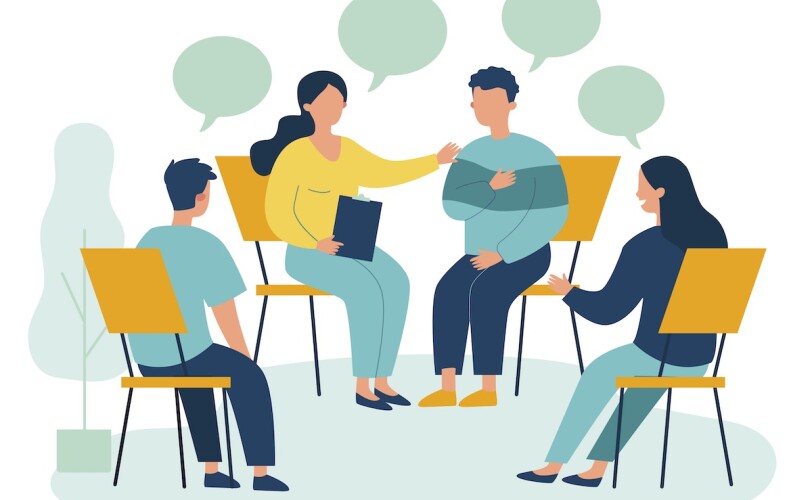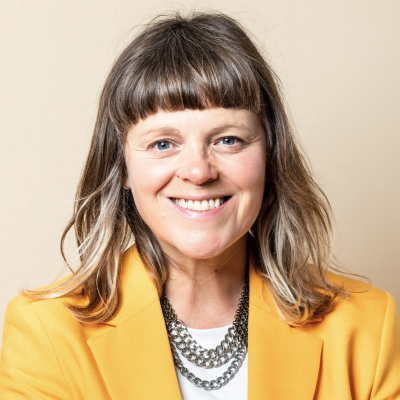Feeling down? Group therapy can help
When any of us feel down/low/depressed/flat, dealing with those feelings might feel difficult enough. In combination with this, most of us can also feel very alone when we feel like this.

Feeling very alone is really common when we feel down. One reason for this is that it is often hard to talk about feeling down as many of us feel like we shouldn’t feel how we do. I often hear clients share that they feel bad for feeling like they do eg. “Look at my life compared to others - I’ve got nothing to complain about” or “I have a great job and lovely home - so much compared to some so I feel awful for feeling awful”.
This is where group therapy comes into its own.
The relief of not feeling so alone
Coming to group therapy and hearing about others' experiences of feeling down can really help. Others' experiences might not be exactly the same as ours but are likely to share enough similarities to our own to be helpful. When we come to learn that others can feel similarly to ourselves it can help us begin to feel less alone. This is the group therapy therapeutic factor of universality (Yalom & Leszcz, 2020) at play i.e. “I am not alone as others feel similarly to me”.
Feeling less alone in how we feel can help us come to realise that it is okay to feel like you do. Furthermore, this can help us begin to take those first steps towards talking about how we feel within group therapy. Receiving the acceptance of our group therapy peers also leads to further acceptance of ourselves and how we feel. This is the group therapy therapeutic factor of the corrective emotional experience (Yalom & Leszcz, 2020) happening.
Trusting our group therapy peers more than our therapist!
Of course, it is possible to feel accepted by our therapist within individual therapy and I often hear that it can be even more powerful to look around at our group therapy peers and see that acceptance in their faces. How come? Many of us might find it hard to trust our individual therapist’s acceptance of aspects of us, that have previously not been accepted by others and/or ourselves.
We can potentially write off our therapist’s acceptance as something that is not truly genuine and is part of their role as our therapist. It can be harder to write off our group therapy peers' acceptance as we come to trust their honest feedback - both constructive criticism and positive affirmation.
I imagine you now thinking “So I come to accept how I feel…but how is that going to help me feel less down…what now?”.
Accepting how we feel changes how we feel
As Carl Rogers (Rogers, 1961, founder of person-centred therapy) shared, paradoxically, when we accept how we feel often this is when how we feel changes.
Furthermore, as Carl Rogers and others (Rundle, 2012) have explored, feeling down is often linked to unexpressed feelings. So when we start feeling more comfortable with sharing how we feel down it might also feel more possible to share more of our other previously unexpressed feelings.
A democracy for feelings
Feeling down might simply be one element of our emotional worlds that we are not expressing. Once we have started to share some of our emotional world it can encourage us to begin sharing more of our emotional world. Emotions or feelings that, yet again, we may feel bad about having and therefore have not dared to express.
I imagine that many of us, at times, have felt bad for feeling angry or sad and therefore have not shared those feelings with anyone else. Or maybe never even admitted to ourselves that we were feeling angry or sad. This lack of expression of our human feelings is what can lead us to feel down/low/depressed/flat.
All of our feelings have something to communicate to us and therefore it can be helpful for us to take notice of them and explore them. As Dr Ezra in the online series Group (Lloyd, 2020) shares, group therapy is a ‘democracy for feelings’. Each and every feeling is equal and tells us something about what is happening for us and in group therapy all feelings are welcome with interest and curiosity.
When we have the freedom to be curious about our feelings we become more free generally. Don’t we all want a bit of that?
References
Lloyd, A. (2020) ‘S1, Ep1 : Group Virgin.’ YouTube.
Rogers, C. R. (1961) ‘On Becoming a Person: A Therapist’s View of Psychotherapy’. Boston, MA: Houghton-Mifflin.
Rundle, K. (2012) ‘When You Just Can’t Snap Out Of It’ in Tolan, J. and Wilkins, P. (Eds). Client issues in counselling and psychotherapy. 1st ed. London: SAGE
Yalom I.D. & Leszcz M. (2020) ‘The Theory and Practice of Group Psychotherapy’: 6th edition. NY: Basic Books

Find a therapist dealing with Depression
All therapists are verified professionals






